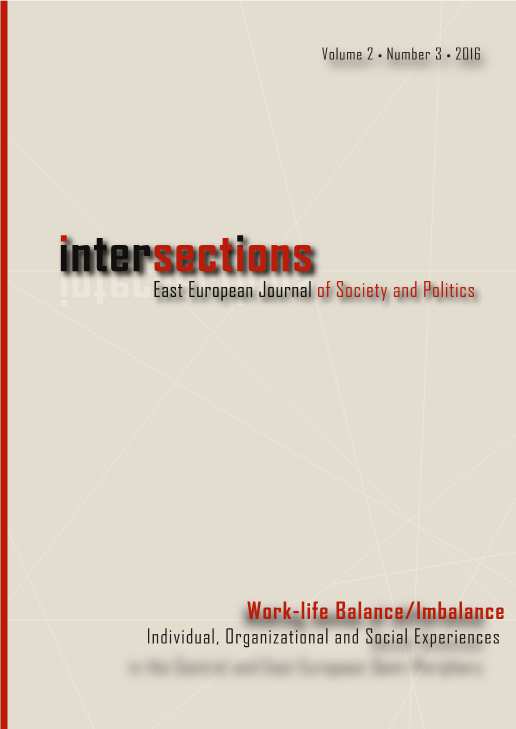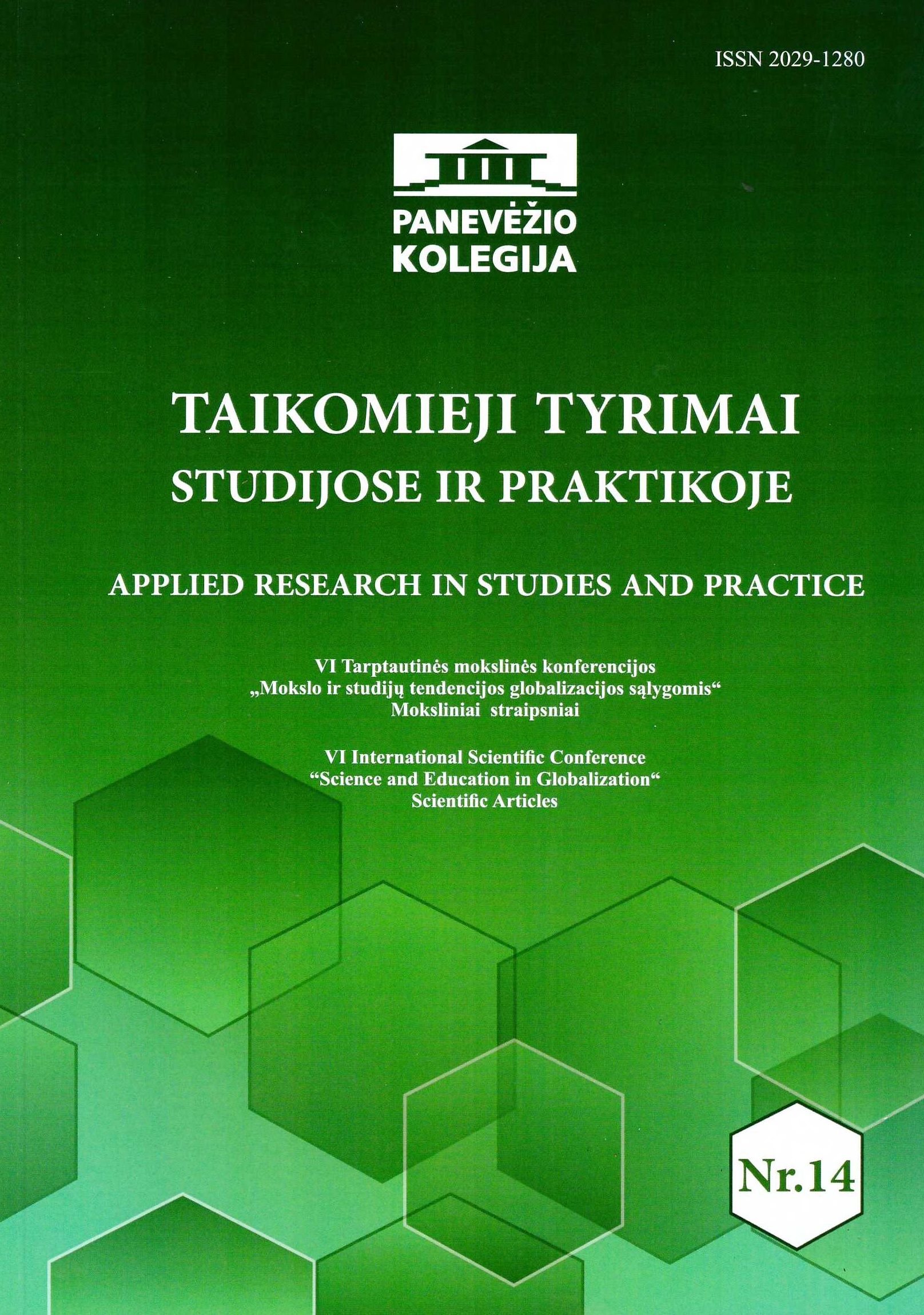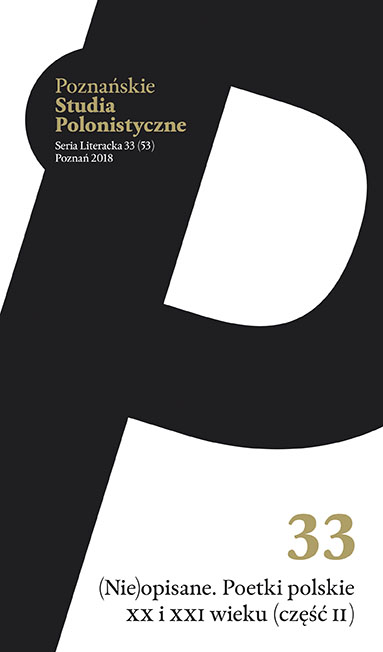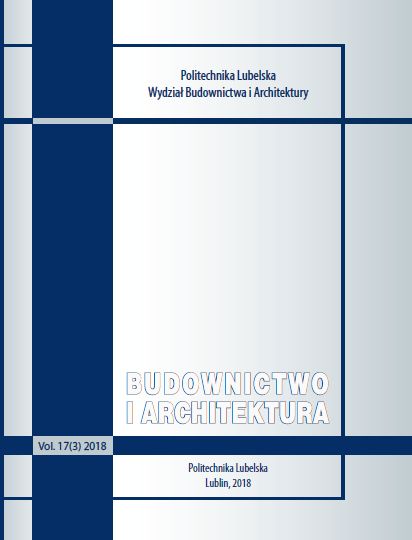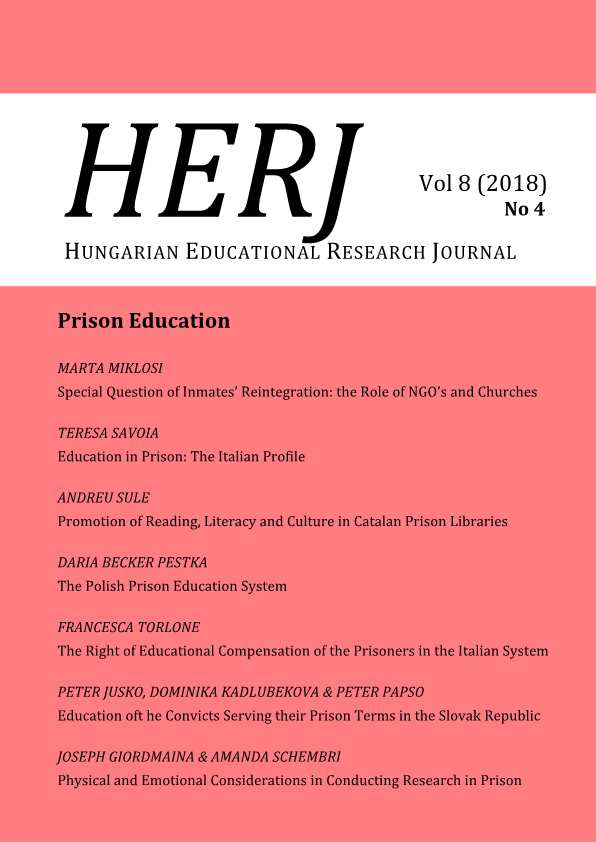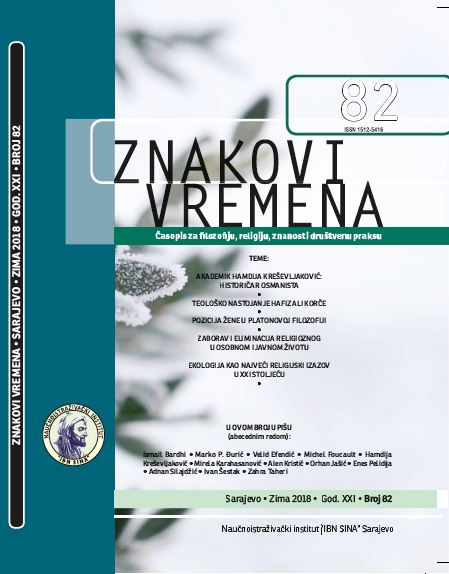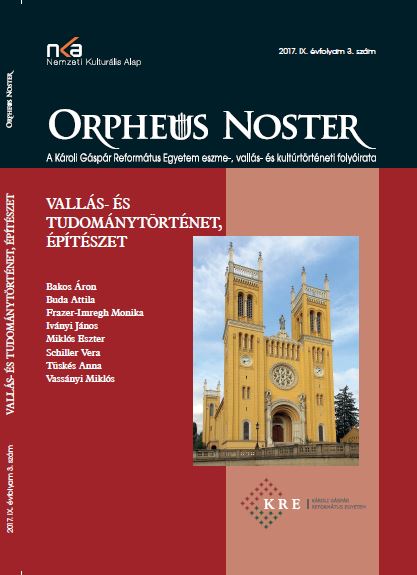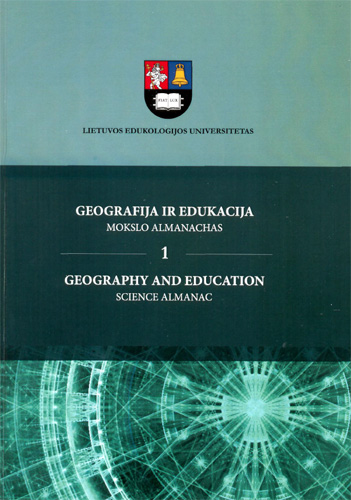Author(s): Alen Kristić / Language(s): Bosnian
Issue: 82/2018
During the Seventh Session of the Parliament of World Religions in Toronto at the end of last year, the “Declaration on World Ethos” was expanded by a chapter on voluntary commitment to a culture of sustainability and care for the Earth, based on the old guidelines common to all religious, spiritual and cultural traditions of humanity: you must not be greedy! Or formulated positively: Think of the good of everyone! In this way, the participants of the Seventh Session of the Parliament of World Religions suggested that ecology would be the biggest challenge of humanity in the 21st century. On this trail, this essay pleads for the urgent development of awareness that in this way ecology becomes the biggest challenge for world religions as well in the 21st century. In that sense, religious men and women should make utmost efforts to re-discover, largely forgotten, ecological capital in their own religious tradition and to begin to re-acquire it by streaming it into concrete and creative forms of environmental protection, open to cooperation with various ecological actors of a religious and non-religious profile in the spirit of self-criticism and teaching. In this conviction, the essay provides initial insights into the ecological capital of Judaism, Christianity and Islam, with illustrative indications what of the ecological capital of Judaism, Christianity and Islam is particularly relevant in view of contemporary forms of ecological crime, which is inseparably linked to an increasing social misery and armed conflict in the world. The essay ends with the pointing at two women, believers, inspired by their own religious tradition and with the skillful use of various ecological resources, to become prominent fighters for ecological justice, and thus also human rights activists, women’s rights in particular, as well as fighters for social justice, democratization, reconciliation and non-violence. In their figures, essential components of the authentic portrait of each man and woman believer in the 21st century are reflected. First of all, it is the notion that ecological awareness poured into real forms of struggle for environmental protection is not a superfluous addition to a believer’s existence but one of its most indispensable, socially responsible outgrowths, without which every speech on authentic faith in the future will be rightfully shown as a mere lie, for purpose of self-denial or deceiving of others doesn’t matter.
More...

